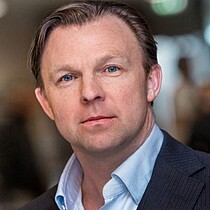

Article: Monday, 8 April 2024
Organisations are showing their commitment to developing leaders in the workforce by spending more on leadership development programmes (LDPs). The expectation is that LDPs return the investment by producing more effective leaders. It was thought that they also contribute in other ways but their effectiveness in other aspects of business hasn’t really been properly measured – until now. It turns out that they have a broader value than you might expect. Researchers found four distinct perspectives for thinking about leadership development in organisations – and all four of them bring their own value to an organisation. The researchers were able to create a diagnostic checklist for designing effective LDPs.
Researchers including Prof. Dirk van Dierendonck and Dr Hannes Leroy of Rotterdam School of Management, Erasmus University (RSM) with Dr Pisitta Vongswasdi of WHU – Otto Beisheim School of Management; Dr Johannes Claeys of IÉSEG School of Management, and Dr Moran Anisman-Razin of the University of Limerick conducted a study, Beyond Developing Leaders: Toward a Multinarrative Understanding of the Value of Leadership Development Programs which was published in Academy of Management Learning and Education.
LDP hosts and users were asked about their attitudes to investing in these programmes that are offered by lots of institutions. There was a focus group of professors responsible for LDPS in leading business schools, and interviews with 40 managers from a range of eight stakeholder organisations in the Netherlands and other countries, including senior executives, HR directors and employees. Their answers showed there are multiple reasons to justify continuing investment in LDPs, and these go far beyond the straightforward reason of ‘developing leaders’. The researchers’ analysis revealed four distinct narratives that show the diverse ways that organisations think about the functions fulfilled by leadership development.
The researchers suggest that evaluation metrics for LDPs adopted in organisations need to look at more than whether these programmes ‘just’ develop better leaders. Their study uncovered multiple criteria that should be considered, and from that, the researchers had three main conclusions.
LDPs are increasingly recognised for their broader contributions to corporate branding, alignment with human resources, and strategic objectives, as well as personal development, making them much more than just tools for cultivating effective leadership skills.
There might be more gains than are actually measured, the researchers suggest, because despite the increase in spending on LDPs, organisations are often hesitant to do thorough evaluations that could verify other leadership gains.
LDPs serve a variety of functions within an organisation and the researchers are among those calling for a more nuanced understanding that includes their personal, organisational, and strategic impacts. Assessments of their effectiveness should not be limited to just traditional outcomes like leadership performance, and programme directors should aim for a more holistic approach to evaluating and designing LDPs, the researchers say.
Four distinct narratives emerged from the focus groups and interviews, each with multiple reasons that people use to justify continuing investment in LDPs, Many of these go far beyond the basic reason of ‘developing leaders’.
Consider that LDPs should yield observable changes in leader behaviour at work. Their success hinges on integrating the programme with daily tasks and getting strong support from supervisors.
They value LDPs for enhancing personal growth and making participants not just better leaders but also more developed individuals. This approach also underscores an organisation's ethical duty to provide development opportunities.
They are sceptical of LDPs' true intent, with some viewing them as superficial branding tools or mere career checkpoints, rather than genuine development initiatives.
Consider LDPs from a strategic angle, focusing on whether they add value to the organisation and align with its broader goals and strategies, going beyond just individual outcomes.
“In fact, all four ways of thinking about LDPs are important for their creation and assessment,” says Dr Hannes Leroy. “The empiricist perspective applies a scientific approach to refine LDPs by pinpointing and addressing issues for practical enhancement. Believers energise new initiatives – you can think of this as akin to crafting visions for the organisation even if there is no solid proof of effectiveness. Trainers with a believer outlook may inspire deeper engagement and programme benefits. Meanwhile, the cynics generate momentum for reform by critically questioning existing leadership norms and revealing gaps between theory and practice. And finally, the pragmatist's view offers a strategic overview, linking LDP activities into an integrated organisational system.”
The researchers propose a diagnostic checklist for effectively incorporating all four perspectives into LDPs; the process starts by identifying the prevailing attitudes and beliefs towards LDPs by matching up the organisation’s approach with statements derived from the study. “This tool can be used to understand personal and collective viewpoints of leadership development,” says Dr Leroy.
The tool gives the attitude "should we invest in LDPs?” per perspective type.
“Our findings may be useful for individuals and organisations,” says Dr Leroy. “First, the insights could help people creating or managing leadership programmes to become more aware of their own beliefs and assumptions about leadership development and the ways in which they shape the training they design.
“Second, the insights could help organisations recognise that their members may hold diverse and competing logics, which would provide them with a better understanding of the resulting tensions around how LDPs should be designed, selected, and evaluated. Lastly, these insights could further assist them in more effectively balancing those different views or considering perspectives.”


Read the full research paper in Academy of Management Learning and Education: Beyond Developing Leaders: Toward a Multinarrative Understanding of the Value of Leadership Development Programs.


Science Communication and Media Officer
Rotterdam School of Management, Erasmus University (RSM) is one of Europe’s top-ranked business schools. RSM provides ground-breaking research and education furthering excellence in all aspects of management and is based in the international port city of Rotterdam – a vital nexus of business, logistics and trade. RSM’s primary focus is on developing business leaders with international careers who can become a force for positive change by carrying their innovative mindset into a sustainable future. Our first-class range of bachelor, master, MBA, PhD and executive programmes encourage them to become to become critical, creative, caring and collaborative thinkers and doers.
